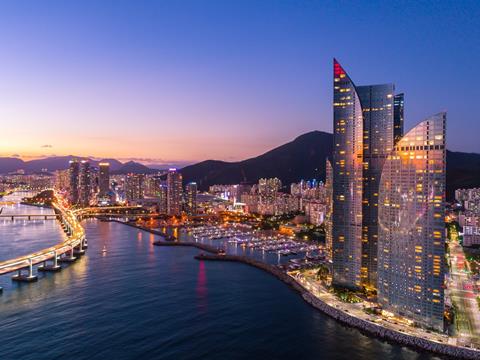
A crucial moment for the global packaging industry begins today. From the 25th of November to the 1st of December, the final round of negotiations towards the UN’s legally-binding plastic treaty will take place in Busan, South Korea. Marta Longhurst, Global Plastics Treaty Manager at the Ellen MacArthur Foundation, argues that governments should unite and seize a historic opportunity to tackle plastic pollution.
Life is full of crucial moments – like a penalty kick in a cup final; a quick move that saves the day in a movie, or the make-or-break bridge in a hit song.
But in the fight against plastic pollution, time is running out fast – and this time, we’re hitting a critical peak.
From 25 November to 1 December 2024, global representatives will convene in Busan, South Korea, for INC-5, the final round of talks to secure a UN treaty based on legally-binding global rules on plastic pollution. These negotiations represent a pivotal, once-in-a-generation opportunity to tackle plastic pollution at its roots.
In these discussions, delegations must agree on legal obligations in the treaty where there is the most alignment, and commit to a process that will allow the strengthening of treaty measures in other areas over time.
In the last round of talks in Ottawa in April, we saw encouraging collaboration, with negotiators showing both ambition and willingness to advance the treaty’s text.
Nevertheless, key issues remain unresolved and the stakes in Busan couldn’t be higher. For this treaty to truly deliver economic and environmental impact, it must be ambitious with enforceable global rules that address the full plastics life cycle.
The current system for making and managing plastics is not working. And so, the system must change. A circular economy that eliminates waste and pollution, circulates products and materials, and regenerates nature, will benefit people, business and the natural world.
The negotiations so far highlighted a key divide among member states – those advocating for globally binding rules and those favouring a country-by-country approach. Without resolving this in Busan, the treaty risks falling short of delivering the impact we so urgently need.
To make progress, we also need commitments to take action to reduce plastic production and cut down on primary plastic polymers, rather than relying solely on recycling and improved waste management.
Although recycling and waste management are important, the most meaningful impact lies in taking upstream actions – restricting or phasing out problematic and avoidable plastic products, significantly expanding reuse models, and redesigning the plastic products we do need. We must stop plastic from becoming waste in the first place.
The importance of tackling the full life-cycle of plastics is why the Ellen MacArthur Foundation recently pledged support to the ‘Bridge to Busan’ declaration. Support for this has come from all quarters including businesses, nonprofits, and countries across the globe, paving the way for the issue of primary plastic polymer production to be kept on the table for the final treaty talks.
As I prepare to head to Busan, I’ll be joined by senior leaders of the business world who share a clear message: we need agreement on a strong treaty grounded in circular economy principles.
It is encouraging to see the increasingly prominent role of businesses shaping the outcome of these talks. The strong presence of corporate leaders at these talks highlights the appetite and recognition from companies that business needs global rules in order to tackle the mounting plastic pollution crisis.
The Global Commitment, the largest voluntary effort to date to tackle plastic pollution and waste, demonstrates the power of collective action. But it has also shown that voluntary action alone is not enough.
Through the work of the Business Coalition for a Global Plastics Treaty, convened by the Foundation alongside WWF, more than 260 businesses and financial institutions across the plastics value chain have endorsed the vision of a robust treaty that has the potential to unlock billions of dollars of economic opportunities, while also creating a level-playing field and stimulating investment and innovation.
Businesses want these rules – and they’re ready to implement scalable solutions that can deliver meaningful change. Government negotiators have this once-in-a-generation opportunity to lay the foundation for this by securing an ambitious and legally binding treaty.
INC-5 represents a historic chance for governments to address plastic pollution at a global scale, and to transform the system so plastic never becomes waste or pollution on our streets, oceans and natural spaces.
As we move closer to this crucial negotiation, there is no time to waste for governments to seize this opportunity.
If you liked this story, you might also enjoy:
The ultimate guide to the Packaging and Packaging Waste Regulation in 2024
How are the top brands progressing on packaging sustainability?
Sustainable Innovation Report 2024: Current trends and future priorities
Everything you need to know about global plastic sustainability regulation














No comments yet